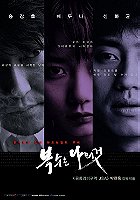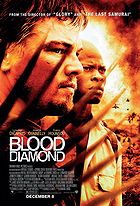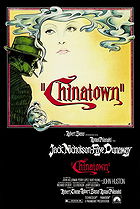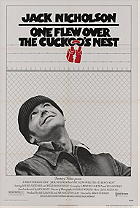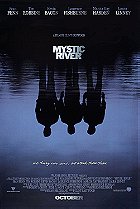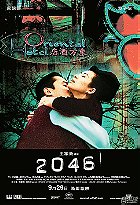An Israeli film director interviews fellow veterans of the 1982 invasion of Lebanon to reconstruct his own memories of his term of service in that conflict.
Ari Folman: Himself
Vals Im Bashir(2008) translating as Waltz with Bashir.
So what is Vals Im Bashir? It is a film project from Israeli director Ari Folman and quite easily among the standout films of 2008, with its surreal animation style and abrupt way of portraying horrific events and genocide. The events concerning the Sabra and Shatila massacre, in which Palestinian men, women and children were massacred by Christian Phalangists as revenge for the assassination of their leader and idolized Bashir Gemayel. The Israelis involvment with the killings is shrouded in mystery, even the sending of flares into the night sky to assist the Phalangists seems baffling.
Vals Im Bashir is also told mostly in the language and dialect of Hebrew.

Taking a rather dreamy documentary approach to his narrative, Folman presents his story through the eyes of his own experience as he tries to uncover his lost memory involving the Lebanon War twenty years past. Through this direct approach to storytelling, the movie immediately achieves a sense of realism, and when used in combination with the other worldly animation that merges with the technique style used in the masterful A Scanner Darkly, strikes a poignant balance between dream-like reminiscence and in-the-moment revelation. In this sense Folman manages to bridge the gap between flashback and real-time storytelling.
Taking his time to talk to several people involved in the war along side himself, Folman presents his character as conducting interviews. Their names will appear in the corner of the screen, and the styles used often echo those found in documentaries. In essence then, what unfolds is virtually an animated documentary of sorts, telling the story of how Folman in real life eventually begins to remember his time serving as a soldier.
Although this straight forward approach to indulging in something of an honest perspective history lesson involving the Lebanon War provides ample interest; It is when Folman uses the animation present in his film to propel forth his story that the project excels; traveling back into his memories of the war itself and presenting first hand accounts. Through these scenes the film goes to great lengths to provide both hard hitting accounts on life during the war as a soldier, and surreal images which deal more with the psychological implications of war. It is during these sequences that Waltz with Bashir achieves its greatest sense of relevancy, merging all three elements of its presentation with grace, significance and well conceived direction. As a war movie, the film and Folman seem to refuse to take a stance on the general concept of war, instead showing what life was like during such times with little to no bias either way; like the masterpiece Apocalypse Now, Waltz with Bashir isn't interested in the politics involved, but more with the humanity that makes war breathe, shoot and come alive in fear. It's a story that lacks a position but is far greater off because of it; war is war and Folman knows this all too well, he just has his own personal story to tell… that is, once he remembers it.
For someone suffering from selective amnesia however, Folman tells a solid tale. Taken as a whole, Waltz with Bashir is a slow moving, but well delivered and insightful piece of cinema that not only sheds light on the people involved and a historical event often shadowed by larger accounts, but it allows the medium to breathe. There are some problems included here, but only in minor details, most of which reside in the somewhat oddly placed third act that shows paradoxically Israeli Soldiers, certainly some of them reported in the massacres, sometimes becoming systematic exterminators.
If this project is maybe considered as propaganda then it thankfully does not side with Israeli thinking nor does it side completely with Palestinian ideology. The massacre and harming of civilians is certainly not acceptable. Yet as we watch we begin to see the chaos and uncaring attitude of the proprietors of the massacre and War.
Children with RPGs in fields, Soldiers urinating on enemy corpses, Palestinians lined up and shot...Waltz with Bashir holds no punches in criticizing itself.
Nevertheless there is no denying that what Folman has to say here is not only important and relevant to us many years on, but that it forms a story that moves, feels alive and isn't afraid to ridicule the people in power and the military drones. There are moments of tension, comedy and insightful characterization that go beyond even the most overt of films that force such elements down your throat. Instead Waltz with Bashir is a gradually enveloping affair that slowly reveals itself as the runtime comes to a close. Taking full advantage of the animated medium and combining it with a beautiful score and a coherent, intelligent and enlightening script, Folman delivers a memorable and confronting biographical drama that is always interesting to watch, even if it all does feel like a nightmarish dream...Waltz with Bashir taunts us into waking up and shows us this nightmare is real.
 Login
Login
 Home
Home 24 Lists
24 Lists 448 Reviews
448 Reviews Collections
Collections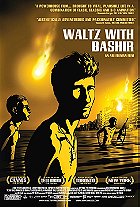
 0 comments,
0 comments, 

